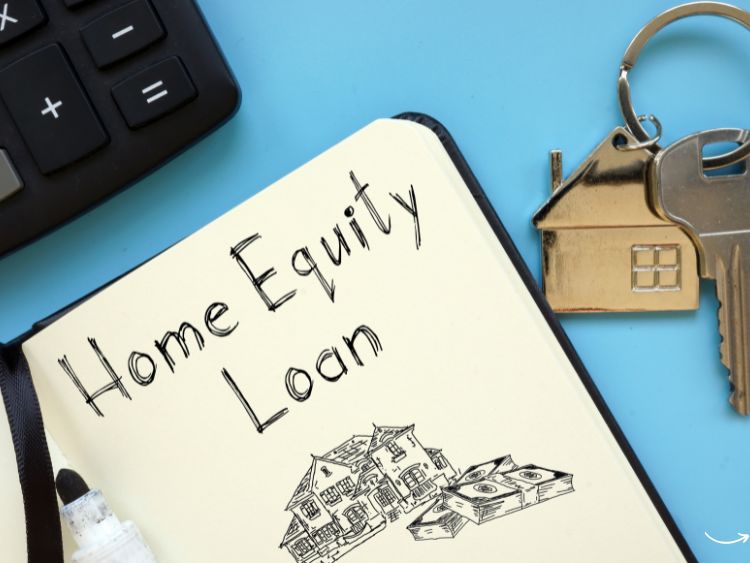Imagine having a treasure chest right under your roof, just waiting to be unlocked! That’s exactly what a home equity loan can be for homeowners. Specifically, a citizens home equity loan offers a golden opportunity to leverage the value of your home to meet your financial needs. Whether it’s funding a major renovation, consolidating debt, or covering unexpected expenses, this financial tool can be a game-changer. But what exactly is a home equity loan, and how can you make the most of it? Let’s dive in!
What is a Citizens Home Equity Loan?
A citizens home equity loan is a type of loan that allows homeowners to borrow against the equity in their homes. Equity, in this context, is the difference between your home’s current market value and the remaining balance on your mortgage. Essentially, it’s the portion of your home that you truly own.
How Does It Work?
Here’s how it works: The lender appraises your home to determine its market value. They then calculate how much equity you have. Typically, lenders allow you to borrow up to 80-85% of your home’s equity. For example, if your home is worth $300,000 and you owe $150,000 on your mortgage, your equity is $150,000. You could potentially borrow up to $127,500 (85% of your equity).
Benefits of a Citizens Home Equity Loan
- Fixed Interest Rates: One of the significant advantages of a home equity loan is the fixed interest rate, which means your monthly payments remain consistent throughout the life of the loan.
- Lump Sum Payment: You receive the loan amount in one lump sum, making it ideal for large expenses like home improvements or medical bills.
- Tax Deductions: In some cases, the interest paid on a home equity loan may be tax-deductible, though you should consult with a tax advisor to understand your specific situation.
Eligibility Requirements
So, you’re probably wondering, am I eligible for a citizens home equity loan? Let’s break down the typical requirements:
- Credit Score: Generally, a good credit score is essential. Most lenders look for a score of 620 or higher.
- Home Equity: As mentioned, you’ll need significant equity in your home. Typically, lenders require at least 15-20% equity.
- Debt-to-Income Ratio: Lenders assess your debt-to-income ratio to ensure you can manage additional debt. A ratio below 43% is usually preferred.
Applying for a Citizens Home Equity Loan
Applying for a citizens home equity loan is relatively straightforward, but it requires careful preparation. Here are the steps to guide you through the process:
1. Assess Your Financial Situation
Before diving in, take a good look at your financial health. Calculate your current debts, monthly expenses, and how much you can afford to borrow and repay.
2. Determine Your Home’s Equity
Use online tools or consult with a real estate professional to estimate your home’s market value. Subtract your mortgage balance to determine your equity.
3. Gather Necessary Documentation
Lenders will require various documents, such as proof of income, tax returns, mortgage statements, and information on any existing debts.
4. Shop Around for Lenders
Don’t settle for the first lender you find. Compare offers from different lenders to find the best interest rates and terms.
5. Submit Your Application
Complete the application process with your chosen lender. This will involve a thorough review of your financial history and an appraisal of your home.
Common Uses of a Citizens Home Equity Loan
Home equity loans can be used for a myriad of purposes. Here are some of the most common:
- Home Renovations: Upgrade your kitchen, add a bathroom, or make your home more energy-efficient.
- Debt Consolidation: Pay off high-interest debts with a lower-interest home equity loan.
- Education Expenses: Fund college tuition or other educational costs.
- Emergency Expenses: Cover unexpected medical bills or other emergencies.
Pros and Cons of Citizens Home Equity Loans
Like any financial product, a citizens home equity loan comes with its own set of pros and cons. Understanding these can help you make an informed decision.
Pros
- Lower Interest Rates: Compared to credit cards and personal loans, home equity loans often have lower interest rates.
- Predictable Payments: Fixed interest rates mean your monthly payments remain the same, making budgeting easier.
- Large Loan Amounts: You can access a substantial amount of money, depending on your home equity.
Cons
- Risk of Foreclosure: Your home is collateral. If you default, you risk losing your home.
- Closing Costs: There are fees associated with home equity loans, similar to those of a mortgage.
- Reduced Equity: Borrowing against your home reduces the equity you’ve built up.
Citizens Home Equity Loan vs. Home Equity Line of Credit (HELOC)
You might be wondering how a citizens home equity loan differs from a home equity line of credit (HELOC). While both allow you to borrow against your home equity, there are key differences:
Home Equity Loan
- Fixed Interest Rate: Interest rates are fixed, providing predictable payments.
- Lump Sum Payment: You receive the loan amount all at once.
- Repayment Period: Typically 5-15 years.
HELOC
- Variable Interest Rate: Interest rates can fluctuate.
- Credit Line: You can borrow as needed up to a certain limit, similar to a credit card.
- Draw Period: Usually 10 years, followed by a repayment period.
FAQs about Citizens Home Equity Loan
What is the minimum credit score required for a citizens home equity loan?
Most lenders require a minimum credit score of 620, but a higher score can help you secure better terms.
Can I use a home equity loan for investment purposes?
Yes, you can use a home equity loan for various purposes, including investments. However, it’s essential to consider the risks involved.
How long does it take to get approved for a home equity loan?
The approval process can take anywhere from two to six weeks, depending on the lender and your financial situation.
Are there any tax benefits to a home equity loan?
Interest on a home equity loan may be tax-deductible if used for home improvements. Consult a tax advisor for specific guidance.
What happens if I can’t repay my home equity loan?
Failure to repay your loan can lead to foreclosure, as your home is used as collateral.
Conclusion
A citizens home equity loan can be a powerful financial tool, unlocking the potential of your home’s value. Whether you’re looking to renovate, consolidate debt, or cover unexpected expenses, understanding the ins and outs of this loan can help you make informed decisions. Always consider the pros and cons, compare offers from different lenders, and ensure you meet the eligibility requirements before applying.
Authoritative Links
By leveraging the equity in your home, you can achieve your financial goals while enjoying the comfort and security of homeownership. Happy borrowing!



